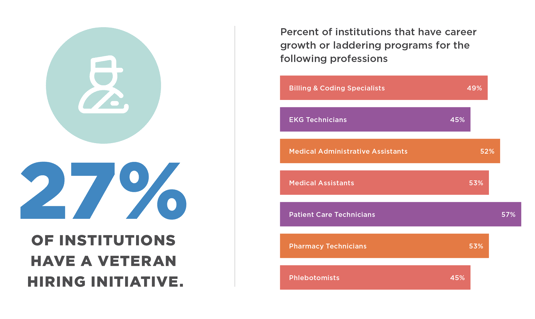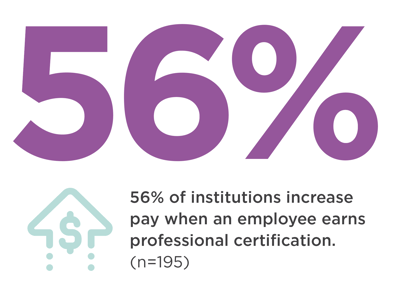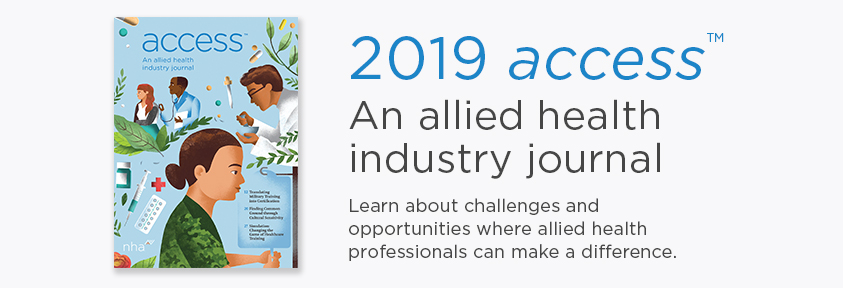NHA's 2021 Industry Outlook shares the trends impacting some of the most in-demand allied health professions. In this year's research, NHA collected insights and data from employers of allied health professionals, digging deeper to understand what they seek in candidates, what these professionals’ daily work looks like, and what traits and skills make them most successful in their roles. Download a copy or read on to learn more about this report.
Understanding the journey to career success
Educators see certification as a milestone for students. Passing a nationally accredited exam means a student is more likely to be work-ready. Employers value the standardization national certification provides and use it to screen job applicants. By using certification as a starting point, healthcare professionals can then work on developing their soft skills, seeking more clinical training, taking on more responsibilities, and developing advanced skills to continue moving forward.
As we’ve done each year, our survey for the Industry Outlook collected insights and data from employers of allied health professionals, digging deeper to understand what they seek in candidates, what these professional’s daily work looks like, and what traits and skills make them most successful in their roles. Trend analysis yielded little change in responses from 2020 to 2021, although there were some notable differences in a few key areas:
- There was a significant increase across all professions (except medical assistants) in partnering with schools to create programs from 2020 to 2021.
- There was a significant increase across employers of all professions reporting that employees have more responsibilities compared to last year from 2020 to 2021.
- Employers of medical assistants and billing & coding specialists reported a significant increase in the level of difficulty it takes to find qualified candidates from 2020 to 2021.
- Employers of medical administrative assistants reported a significant drop in preparedness of new certificate holders performing their job duties.
These insights are telling. They speak to the resilience of our frontline healthcare workers in the face of a pandemic, they also tell us of the continued opportunities educators and employers have to invest in these professionals and give them access to a better future by ensuring they have solid foundational knowledge, essential soft skills training, and career advancement options.
We hope you find these statistics helpful as you continue to advocate for the role of the allied health professional.
Get a copy of the research by clicking below, and keep on scrolling to get some highlights from the survey.


The NHA Industry Outlook was part of the 2021 edition of access. Download the full publication now:






